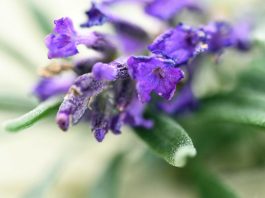In today’s fast-paced world, where stress and environmental factors constantly challenge our immune systems, finding natural ways to bolster our health is more important than ever. Enter echinacea, a flowering plant revered for its immune-boosting properties. For centuries, indigenous peoples of North America have harnessed the power of echinacea to combat infections and promote overall wellness. Now, as modern research begins to catch up with traditional wisdom, we are discovering just how effective this natural remedy can be in supporting our body’s defenses. This article aims to explore the myriad benefits of echinacea, providing you with valuable insights on how this remarkable plant can become a trusted ally in your quest for health and vitality. Whether you’re seeking to prevent common colds or looking for a complementary approach to managing infections, echinacea offers a promising, natural solution. Let’s delve into the science and tradition behind this potent herb and uncover how it can enhance your well-being.
Understanding Echinacea: A Natural Ally in Boosting Your Immune System
For centuries, Echinacea has been heralded as a powerful herbal remedy, primarily used to ward off infections and bolster the immune system. This potent plant, native to North America, is rich in active compounds such as flavonoids, which are believed to reduce inflammation and enhance immunity. Incorporating Echinacea into your daily routine can be a proactive step towards maintaining health and vitality.
- Immune System Support: Echinacea is widely recognized for its ability to enhance immune function, helping the body fight off colds, flu, and other infections.
- Anti-inflammatory Properties: The herb contains compounds that may reduce inflammation, providing relief from symptoms of respiratory infections and other inflammatory conditions.
- Antioxidant Effects: Echinacea is packed with antioxidants, which can help protect your cells from damage and support overall health.
| Echinacea Benefits | Details |
|---|---|
| Boosts Immunity | Enhances white blood cell activity |
| Reduces Cold Symptoms | May decrease duration and severity |
| Supports Respiratory Health | Alleviates symptoms of bronchitis |
Note: While Echinacea is generally considered safe for most people, it’s important to consult with a healthcare provider before starting any new supplement, especially for those with allergies to plants in the daisy family or who are taking other medications.

Exploring the Science: How Echinacea Works to Combat Infections
At the heart of echinacea’s infection-fighting prowess lies its remarkable ability to enhance the immune system. This powerful herb contains active compounds such as alkamides, glycoproteins, and polysaccharides, which work synergistically to bolster the body’s natural defenses. Echinacea stimulates the activity of macrophages and other immune cells, enabling them to effectively identify and eliminate harmful pathogens. By enhancing the production of white blood cells, it helps the body to rapidly respond to infections.
- Increased Cytokine Production: Echinacea can boost the production of cytokines, which are crucial for cell signaling in immune responses.
- Antioxidant Properties: The herb’s antioxidants combat oxidative stress, further supporting immune health.
- Anti-inflammatory Effects: By reducing inflammation, echinacea can help alleviate symptoms associated with infections.
| Component | Function |
|---|---|
| Alkamides | Modulate immune response |
| Polysaccharides | Enhance cell-mediated immunity |
| Flavonoids | Provide antioxidant support |
Understanding the science behind echinacea’s effects reveals why it remains a trusted ally in combating infections. By supporting the body’s natural defense mechanisms, this herb not only aids in recovery but also helps in maintaining overall health. As you incorporate echinacea into your wellness routine, you’re empowering your immune system to function at its best.

Incorporating Echinacea into Your Routine: Practical Tips for Optimal Results
Integrating echinacea into your daily life can be a seamless process with a few thoughtful steps. To maximize its infection-fighting potential, consider starting your day with a soothing cup of echinacea tea. This warm beverage can not only provide comfort but also prepare your immune system to face the day’s challenges. If you’re on-the-go, echinacea supplements are an effective alternative. Available in capsule, tablet, or tincture forms, these can be easily incorporated into your morning vitamin regimen.
- Echinacea Tea: Brew a cup in the morning or during a mid-afternoon break.
- Supplements: Opt for capsules or tablets for convenience.
- Tinctures: Add a few drops to water or juice for a quick boost.
When selecting echinacea products, quality matters. Look for brands that prioritize purity and sustainable sourcing. Below is a simple comparison of common echinacea forms to help you decide:
| Form | Pros | Cons |
|---|---|---|
| Tea | Relaxing, hydrating | Time-consuming to prepare |
| Capsules | Convenient, portable | May contain fillers |
| Tinctures | Fast absorption, versatile | Strong taste |
Remember, consistency is key. Whether you prefer a hot tea or a quick capsule, regular use is essential to harness the full benefits of echinacea in your fight against infections. Listen to your body and adjust your intake as needed to maintain optimal health and well-being.

Choosing the Right Echinacea Product: What to Look for and How to Decide
When selecting an echinacea product, it’s essential to consider a few key factors to ensure you are getting the most effective formulation for your needs. First, identify the species of echinacea used in the product. Echinacea purpurea, Echinacea angustifolia, and Echinacea pallida are the most common species, each with unique benefits. Echinacea purpurea is often preferred for immune support, while Echinacea angustifolia is known for its potent anti-inflammatory properties.
Next, evaluate the form and dosage. Echinacea is available in various forms, including capsules, tinctures, teas, and extracts. Capsules and tinctures often provide a more concentrated dose, whereas teas offer a milder approach. Consider your lifestyle and preferences when deciding which form to choose. Additionally, ensure the product specifies the echinacea’s active compounds, such as alkamides, polysaccharides, and cichoric acid, which are critical for its effectiveness.
- Organic Certification: Look for products that are organically certified to avoid pesticides and additives.
- Third-party Testing: Choose brands that conduct third-party testing to ensure purity and potency.
- Ingredient List: Check for additional ingredients or fillers that may not align with your health goals.
| Echinacea Species | Primary Benefit |
|---|---|
| Echinacea purpurea | Immune Support |
| Echinacea angustifolia | Anti-inflammatory |
| Echinacea pallida | Respiratory Health |




